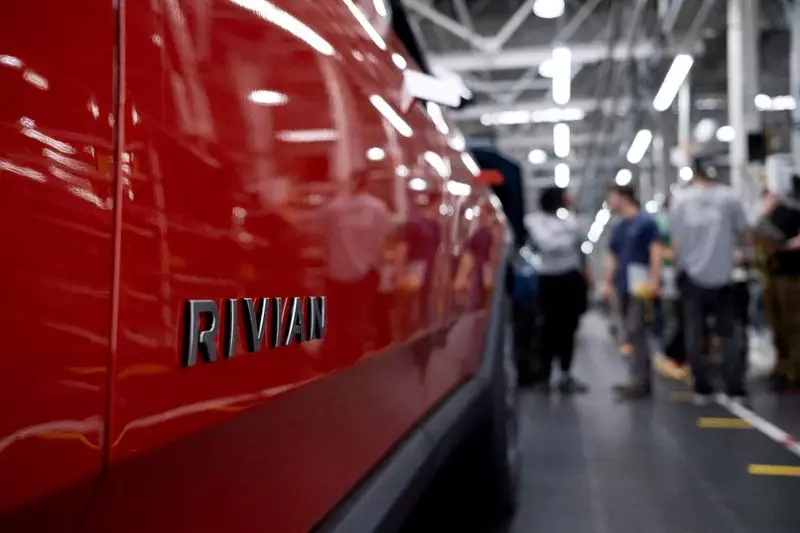In an era where the automotive industry is rapidly transitioning toward electric vehicles (EVs), strategic collaborations are becoming essential. A notable partnership has emerged between Rivian, the U.S. manufacturer known for its electric SUVs and pickups, and the German giant Volkswagen. This alliance is not merely about production; it signifies a mutual adaptation to the evolving landscape of technology in the automotive sector. Rivian’s Chief Software Officer, Wassym Bensaid, highlighted the openness of the venture to discussions with other Original Equipment Manufacturers (OEMs), indicating a broader trend towards collaborative innovation in the industry.
In November, Volkswagen committed a substantial $5.8 billion investment into the Rivian-led joint venture. This financial backing is pivotal for both companies as they seek to integrate advanced electrical infrastructure and sophisticated software technology into their future electric vehicles. For Rivian, this partnership grants leverage in negotiations with suppliers, crucial amid a noted decline in EV demand. It also opens pathways for reducing production costs. Conversely, Volkswagen stands to benefit immensely by gaining access to the cutting-edge technologies and software solutions that they have been striving to develop independently.
As Rivian’s Chief Software Officer indicated, the interest from other automakers is palpable. “Many other OEMs are knocking on our door,” he mentioned, highlighting the demand for innovative technological solutions within the automotive landscape. Notably, Rivian’s architecture offers significant advantages, including fewer electronic control units and less wiring, which leads to lighter vehicles and a simplified manufacturing process. This technological prowess aligns perfectly with the contemporary industry’s emphasis on “software-defined vehicles.” Here, Rivian offers capabilities like over-the-air (OTA) software updates—reminiscent of smartphone technology—a domain where many historical manufacturers are struggling to catch up.
Looking ahead, Rivian’s immediate priority is to successfully launch its R2, a smaller and more affordable SUV, which is expected to broaden its market reach. Additionally, the venture aims to facilitate integration of Rivian’s technology within other Volkswagen brands. This strategic positioning not only enhances the competitive edge of both companies but also positions the venture as a favored platform among Western automakers, effectively standing alongside industry leaders like Tesla. Analysts from Canaccord Genuity have noted that the joint venture is capable of alleviating significant capital burdens for Rivian, making it a model for future collaboration in the industry.
The Rivian-Volkswagen partnership epitomizes a crucial shift in how automobile manufacturers are approaching technology and innovation. By embracing collaboration over competition, they are setting a precedent that may reshape the contours of the automotive market. As the demand for electric vehicles pivots towards advanced technological integration, such partnerships will likely prove vital for both growth and sustainability in the sector. The unfolding developments within this joint venture could indeed carry repercussions for the entire automotive industry, urging other companies to reconsider their strategies in the context of a rapidly changing technological landscape.

